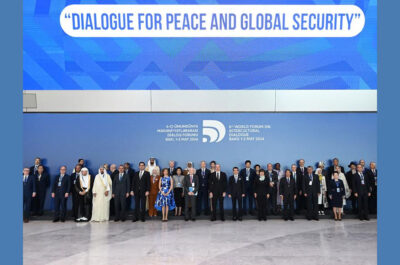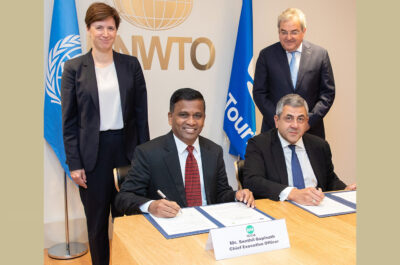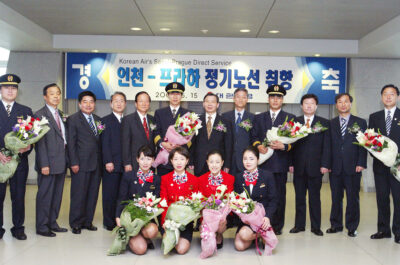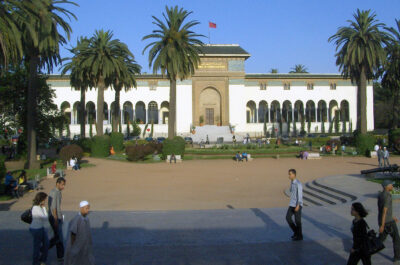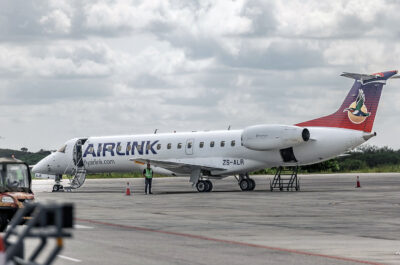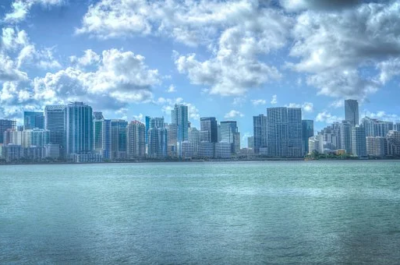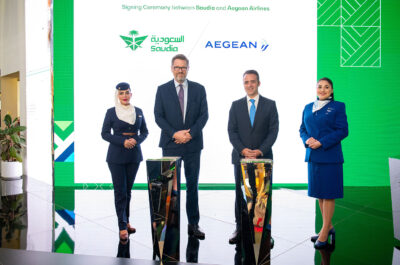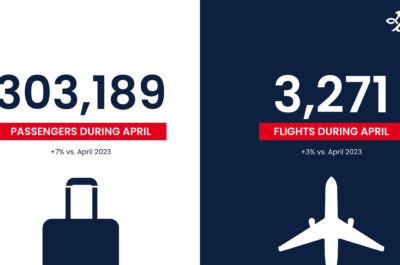The Fifth International Tourism Forum for Parliamentarians and Local Authorities brought together over 300 representatives from 95 countries. The participants reviewed the key factors affecting tourism and how the…
The Fifth International Tourism Forum for Parliamentarians and Local Authorities brought together over 300 representatives from 95 countries. The participants reviewed the key factors affecting tourism and how the sector interfaces with national and local governments, ranging from economic aspects to social, cultural and environmental issues.
The meeting, celebrated from 13-15 June in Hammamet, Tunesia, was inaugurated by Prime Minister H.E. Mohamed Ghannouchi and presided by H.E. Minister of Tourism Tijani Haddad.
Officials and representatives of parliaments and local governments met with members of the private sector, underscoring the increasingly important role which national, regional and local governments have in mapping the future progress of sustainable tourism.
HAMMAMET DECLARATION 2007
Representatives of Parliaments and Local Authorities from 95 countries, meeting in Hammamet, Tunisia under the auspices of UNWTO and the high patronage of the President of the Republic of Tunisia, H.E. Mr. Zine El Abidine Ben Ali, to consider the role of Tourism in relation to evolving global trends, conscious of
their important role in the overall governance and development of the sector, concluded that:
- Tourism transcends political or ideological differences, providing a unique basis for open, cross cultural dialogue, understanding and peaceful development.
- The worldwide movement of tourists, for business and leisure has become a vital component of the harmonious evolution of our society. The right to travel, for contact, discovery, trade and experience is an increasingly important element of cohesion in a globalizing world.
- The sector continues to make a powerful and sustained contribution to global and local economic growth, employment and trade flows, with particular benefits for developing countries and for poorer regions in all states.
- Tourism has long term resilience, despite man made & natural disasters. Moderation of historical annual growth trends of 6% during the past half century to a projected 4% going forward, signals a maturing of the sector. It is particularly important, that developing country markets are growing at a higher rate than the global norm.
- With sustainable management, the sector can make a lasting contribution to socioeconomic development at both a global and local level. The tourism industry and its institutions are learning to anticipate risks, to respond rapidly to shock and are increasingly conscious of the need to match expansion with carrying capacity. This is particularly important at the local destination level where the impacts are most acute,
where the public and private sector must collaborate closely for adequate response and where the views of communities have to be factored into the decision making process. This decentralization will intensify and the roles of UNWTO’s Affiliate Members and new Centre of Excellence for Destinations will be increasingly
relevant. - Tourism has to play its part in responding to the two major challenges of our time – the issues of extreme poverty and climate change. The Secretary General of the UN has rightly identified the need for a coherent strategy – for energy conscious sustainability and for development focused solidarity.
- UNWTO as the central UN Agency for the sector can seriously help the achievement of the Millennium Development Goals and alignment of key programs of the organization for this purpose is a positive sign – most notably its ST-EP program which focuses on the use of sustainable tourism for the elimination of poverty and its application to community integration and capacity building. Tourism is well suited to support the MDGs – poorer countries all have important tourism export flows, direct impacts of tourism at community level is significant and catalytic indirect effects on other economic activities are substantial. At the local level it has unique potential for marginalized communities, for young people and for women.
- UNWTO can also help the sector in the essential constructive response to the Climate imperative. That response has to establish a long term framework of change that must be initiated now with a focus on adaptation, mitigation and new technologies across all parts of the tourism supply and demand chains. Products, processes and structures will need to be re-focused at both industry and consumer levels. The need to protect developing and emerging countries, who rely on tourism exports, was emphasized – particularly in the context of their vital air transport development lifelines. The planned development of the 2003 Djerba Declaration with major stakeholder Summits in Davos, London and Cartagena was noted positively, as was the fact that UNWTO would be inputting for the sector to the UN Assembly in New York and the UN Bali World Summit.
- To underpin its work on poverty and climate, UNWTO should consolidate its sector defining initiatives to measure economic impacts through the Tourism Satellite Account, to establish responsible tourism practices through the Global Code of Ethics to drive destination management through its Sustainability Indicators, to
promote Africa through its Windows on Africa Portal and to support emergency response, particularly avian influenza preparedness, through its www.sos.travel initiative. - Tourism is a crosscutting sector which can provide valuable inputs and synergies for many sectors of the economy at local, national, regional and global levels – e.g. infrastructure, communications and investment. It is important that government at all levels recognize this reality and factor it into their primary decision making activities. The development community should also take account of both its social and economic impacts and synergies. As should the World Trade Organization in its Doha Development Round and Aid for Trade initiative.
- UNWTO should promote this agenda. It should also increase efforts to engage the media in a mutually constructive open and responsible way.
- Parliamentarians and Local Authorities provide a valuable governance input to the sector: The Government of Tunisia has hosted the 5th Forum with deep insight of the issues, challenges and opportunities for the sector as well as with its legendary hospitality. UNWTO should continue this tradition and should strengthen contact between meetings.
Theodore is the Co-Founder and Managing Editor of TravelDailyNews Media Network; his responsibilities include business development and planning for TravelDailyNews long-term opportunities.















